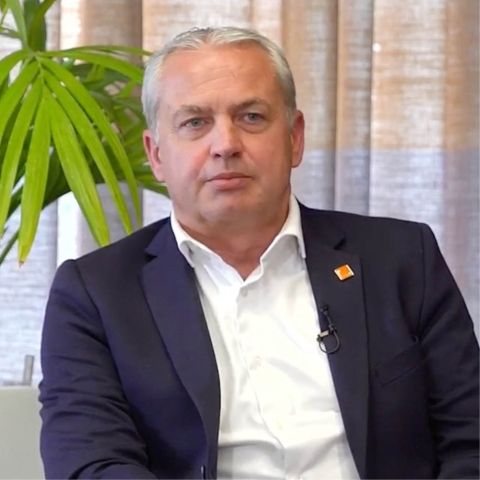News 5G removes barriers and opens doors
Over the last few years, Orange Belgium has submitted several 5G subsidy applications to the Federal Public Service Economy in conjunction with partners and companies. Eleven of these 5G pilot projects have been selected and laid the groundwork for a number of innovative projects that have since been developed.
For Werner De Laet, Chief Enterprise Officer & Innovation at Orange Belgium, all these innovations are prime examples of the impact of 5G. “It’s more than simply technology that provides connectivity,” he says. “5G is a technology that removes barriers, opens doors and makes human expertise more widely applicable.” This blog looks at a variety of cases to highlight five important evolutions made possible by 5G.
5G is a technology that removes barriers, opens doors and makes human expertise more widely applicable.
Opportunities for smaller events
Liège-based Belgian company EVS specialises in live broadcasts of events such as concerts or sports fixtures. Normally, this requires the broadcasting company to deploy an entire production team on site. With 5G, however, this is no longer necessary: thanks to this technology, the entire production can be handled remotely from a central control room.
“The obvious benefits in this particular case are cost efficiency and a reduced environmental footprint,” De Laet points out. “But in my opinion, the chief benefit of this approach is the broadcasting opportunities this creates for smaller scale events, which could otherwise never afford to send a production team on site. 5G removes that barrier.”
More accessible culture
Last year, as part of this pilot project, EVS broadcast a performance of Racine’s play Andromaque at the Théâtre de Liège live via Orange Belgium’s 5G network. This gave more than 10,000 pupils the opportunity to watch the play in more than 100 schools in the French-speaking community.
“This is how 5G makes culture more accessible,” De Laet says. “Some of those 10,000 pupils would never have been able to travel to Liège to attend the play. It would also be a pity for pupils to miss out on a cultural event because they can’t afford the bus fare. This means 5G can also help reduce school expenses.”
Deploying medical specialists more broadly
Werner De Laet sees a similar situation in the pilot project that Orange Belgium is conducting with Barco, involving remote surgical assistance. With Barco’s NexxisLive solution, external specialists can monitor a live feed of an operation from a distance and advise the surgical team at the hospital if and when necessary. Thanks to the 5G network of Orange Belgium, these images can also be forwarded in complete safety and with high image quality.
“Medical specialists are becoming increasingly scarce,” De Laet says. “By helping hospitals deploy specialists from a distance, regardless of their location, 5G is making this expertise much more widely available.” In the next phase of the project, it should even be possible to operate surgical robots over a 5G connection. “That should make it even easier to let specialised surgeons do what they are good at, and that is operating, instead of wasting precious time travelling,” says De Laet.
Revalorisation of the profession of captain
The shipping industry is facing the same challenge of putting rare expertise to best use. The shortage of captains, for instance, has been an ongoing concern for years. The Belgian technology company Seafar supports cargo lines and ship owners in deploying uncrewed vessels and vessels with a skeleton crew, from a control centre in Antwerp. The container ships that Seafar operates remotely are equipped with cameras, whose images are currently sent to the control centre via 4G.
In the pilot project using 5G architecture designed by Orange Belgium, the superior bandwidth of 5G allows Seafar to use 360° cameras with high image quality. For the captain in the control centre, this creates a virtual reality experience that boosts their situational awareness. “As such, 5G will help to revalorise the occupation of ship’s captain,” De Laet predicts. “Monitoring multiple vessels from a control centre in eight-hour shifts is a totally different work rhythm than physically being on that ship round the clock.”

Remote expertise
For SkyeBase, too, the high bandwidth of 5G was one of the reasons to apply for subsidies from the federal government for industrial inspections using drones. Thanks to Orange’s 5G network, the Antwerp-based company no longer has to wait to view images stored on an SD card. By connecting to 5G, the high-quality camera images can instantly be sent to the cloud, where they can be inspected right away.
“In this case, too, experts can easily participate in inspections from a distance and share their knowledge, even if they can’t be there in person,” says De Laet. “Moreover, AI models in the cloud can detect anomalies or defects in the images, providing valuable insights and support for inspectors and drone operators.”
Are you curious to find out how 5G can remove barriers or open doors for your business? Explore the possibilities of 5G.




